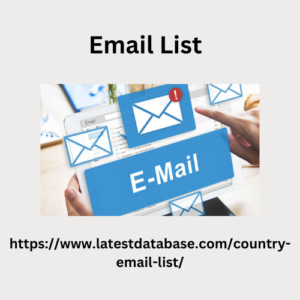In the age of instant communication, accessibility is key. For businesses, ensuring customers can easily reach them is crucial. Understanding the 888 Area Code: A Guide for Businesses and Callers. Enter the 888 area code, a widely recognized prefix synonymous with toll-free calling in North America. This article delves into the world of 888 numbers, exploring their benefits, considerations, and how they differ from other toll-free options.
What is an 888 Area Code?
Unlike traditional geographic area codes, 888 signifies a toll-free number. This means the cost of the call falls on the business that owns the number, not the caller. When a customer dials an 888 number, the call is routed to a designated location, typically a call center or the company’s headquarters.
Why Use an 888 Toll-Free Number?
There are several compelling reasons businesses choose 888 numbers:
-
Enhanced Customer Experience: By eliminating call charges, businesses remove a barrier for customers seeking support or placing orders. This translates to increased customer satisfaction and potentially higher sales.
-
Nationwide Accessibility: An 888 number transcends geographical limitations. It allows customers across North America (including the United States and Canada) to connect with the business effortlessly, regardless of their location.
-
Improved Brand Image: A toll-free number projects a professional and established image. It conveys that the company prioritizes customer service and is readily available to address inquiries.
-
Memorable Options: Many 888 numbers can be customized for memorability. Businesses can incorporate letters corresponding to numbers on a phone keypad (e.g., 1-888-FLOWERS) to create a unique and easily remembered sequence.
Beyond the Benefits: Considerations for Businesses
While 888 numbers offer numerous advantages, there are factors to consider:
-
Costs for Businesses: Businesses incur fees for setting up and maintaining a toll-free number. These costs vary depending on the chosen service provider and plan.
-
Potential for Spam Calls: Like any publicly Trinidad and Tobago Email List available number, there’s a risk of receiving spam calls. Businesses need to have call management systems in place to mitigate this.
-
Not a Replacement for Local Presence: A toll-free number shouldn’t replace a local number for customers in the business’s immediate area. Maintaining a local presence allows for a more personal connection with the local community.
888 vs. Other Toll-Free Prefixes
The North American Numbering Plan (NANP) assigns several prefixes for toll-free service, including 800, 855, and 877. While all serve the same core function, there are subtle differences:
-
Availability: 800 numbers were introduced first and may have limited availability compared to newer prefixes like 888.
-
Brand Recognition: 800 numbers are often perceived as the most traditional toll-free option, potentially leading to higher brand recognition.
-
Marketing Strategies: Businesses may choose a specific prefix based on marketing campaigns or simply preference.
Finding the Right 888 Toll-Free Number
There are numerous providers offering toll-free number solutions. Here are some tips for choosing the right number for your business:
-
Prioritize Memorability: Opt for a number that’s easy to remember and aligns with your brand.
-
Check Availability: Ensure the chosen Conditional Forwarding Calls: A Comprehensive Guide number isn’t already in use by another business in your industry.
-
Compare Service Providers: Research different providers to find one that offers competitive rates and features that meet your needs.
Understanding the Caller’s Perspective
For callers, encountering an 888 number signifies a toll-free call, eliminating any concerns about long-distance charges. This can lead to increased call volume and improved customer engagement. However, it’s important to note that some mobile phone plans may charge for minutes used on toll-free calls.
In Conclusion
The 888 area code plays a vital role in facilitating communication between businesses and customers across North America. By understanding the advantages and considerations for both parties, businesses can leverage 888 numbers to enhance customer service, accessibility, and brand image. For callers, recognizing an 888 number ensures a cost-effective way to connect with the desired business.


